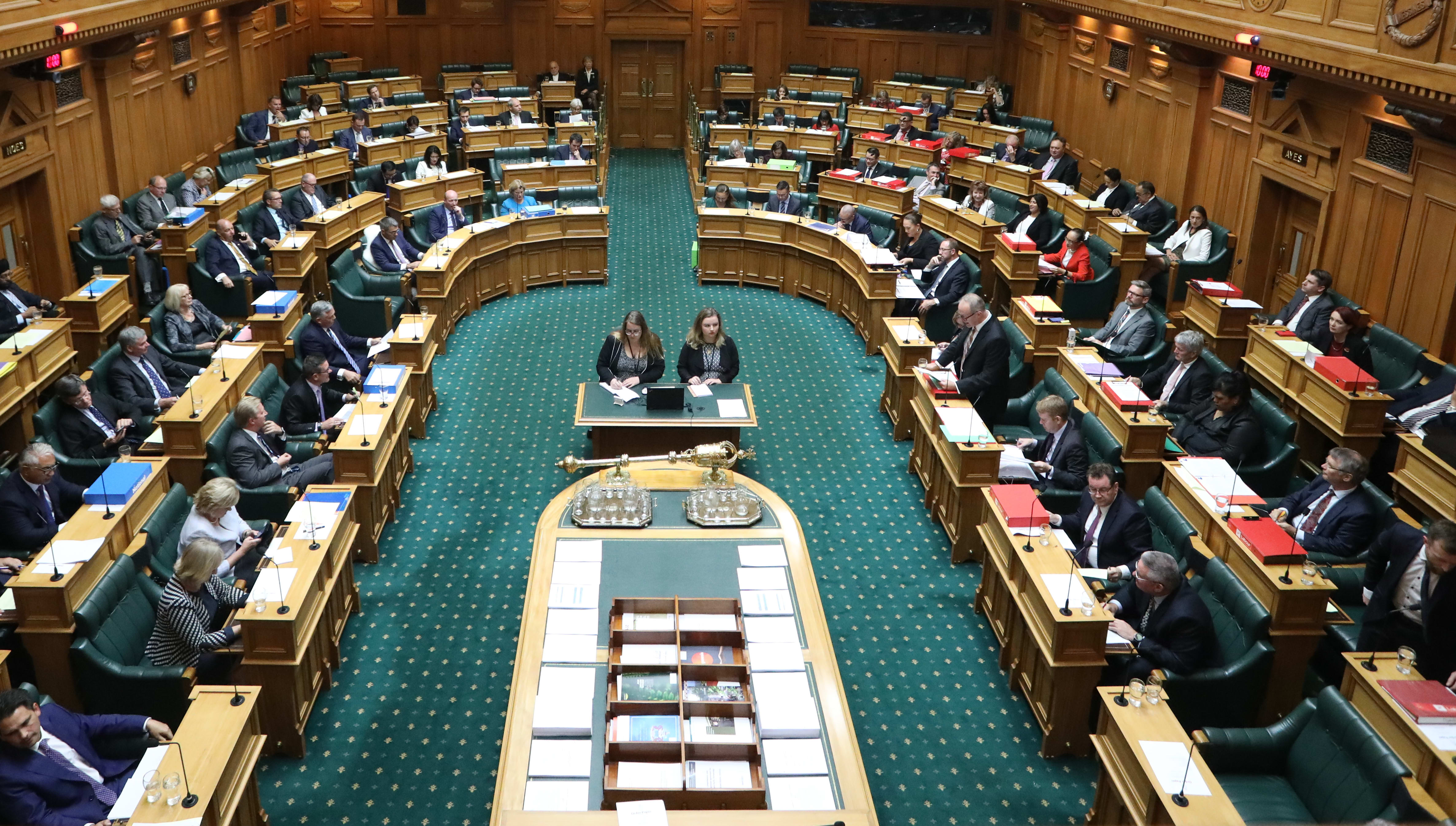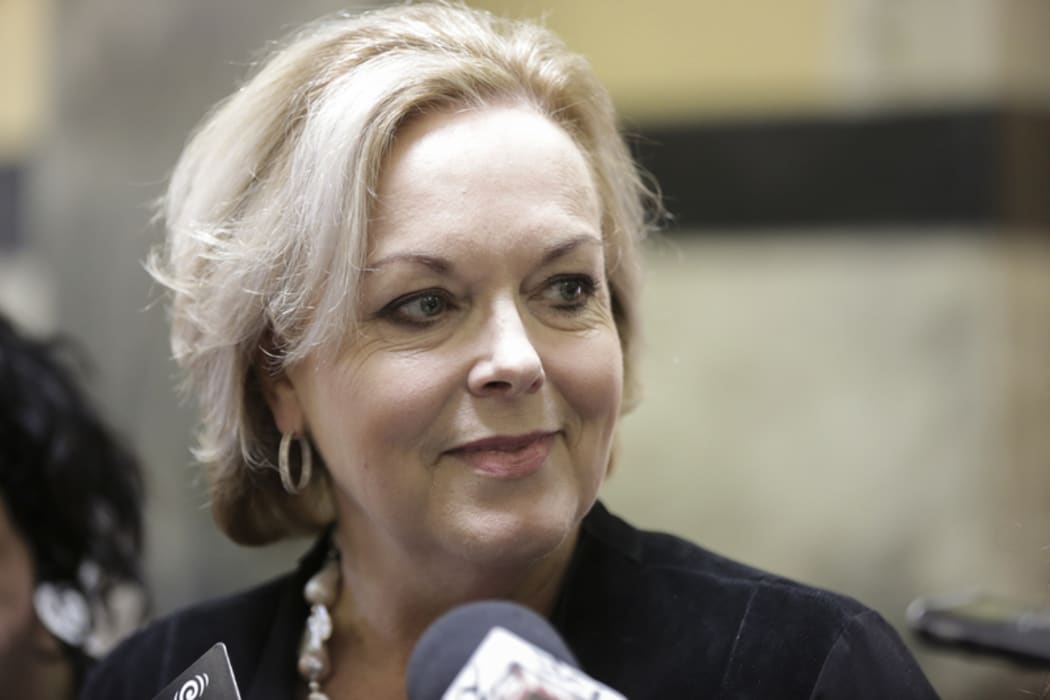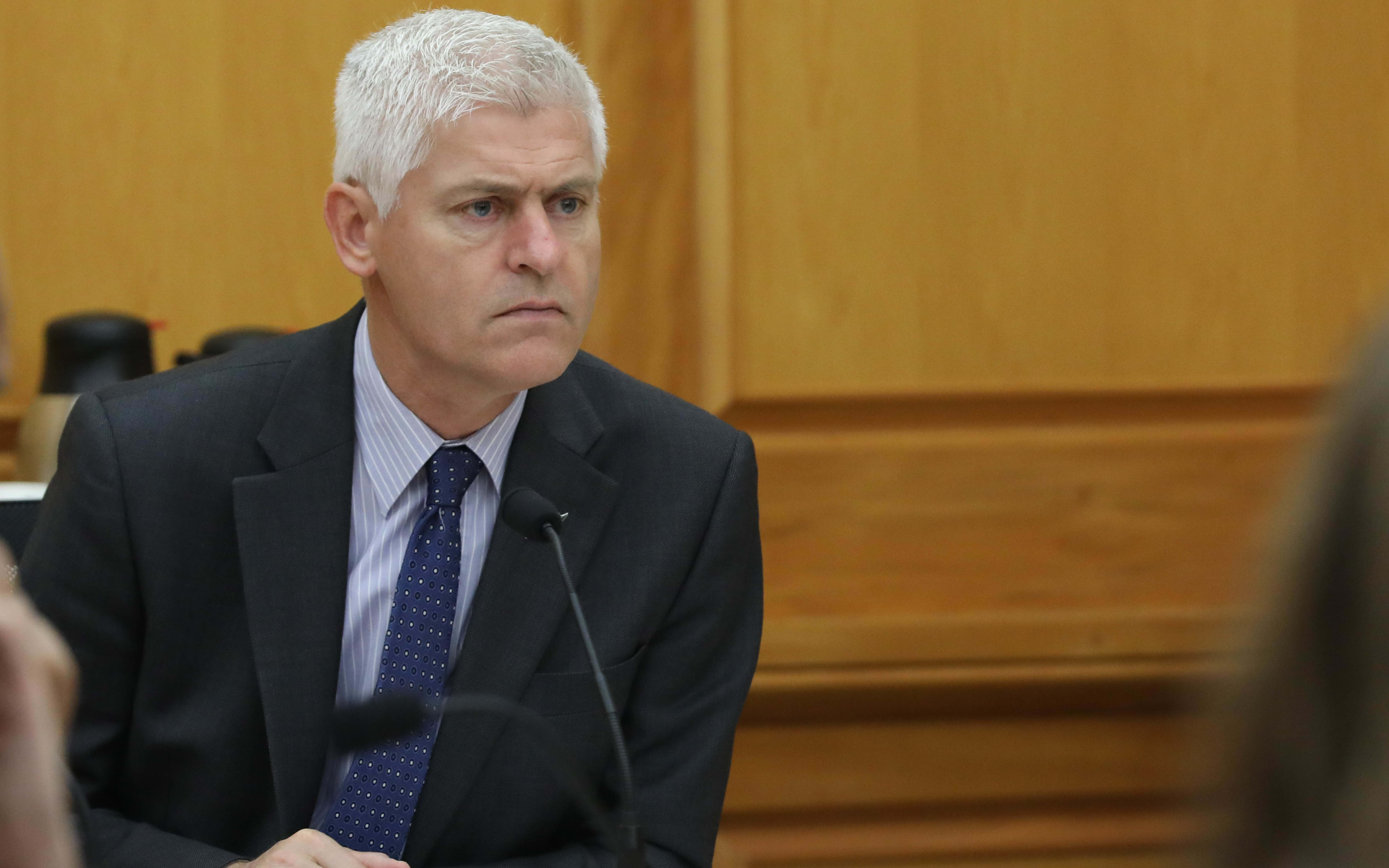It’s all about committees today as MPs work through banning letting fees, reducing family violence and regulating fibre fixed line services.

Photo: VNP / Phil Smith
MPs are required to be at Parliament for scheduled sitting days where they literally sit in the debating chamber’s green leather chairs and work through legislation. The Order Paper determines what they’ll work on but it’s subject to change so below is a proposed schedule.
The committee of the whole House
Bills have to go through a series of stages before they become law and the committee stage is number five.
More on how a bill becomes law here.
Most stages have a time limit on them in the House but the committee stage (full name: committee of the whole House) goes on for as long as is necessary.
The reason it can take awhile is that MPs debate the Bill in detail, pulling apart things like its title, the Act it will amend, and sometimes even the placement of a comma.
It's so the House can decide if the bill has all the right parts in it to do what it says it will, and to approve changes if it doesn’t.
Any MP can speak in this debate (although speeches are shorter) and also propose their own changes (called supplementary order papers or SOPs). MPs can also speak more than once but the chairperson will move the debate on if it gets repetitive. The Speaker leaves the House for this stage and is called back when the committee wants to report how far along they've got.
Lots more detail on the committee stage can be found here
Banning letting fees - committee stage
What:
-
Technical name: The Residential Tenancies (Prohibiting Letting Fees) Amendment Bill in the name of Minister of Housing and Urban Development Phil Twyford.
-
It will prohibit landlords from charging tenants a letting fee.
Why:
-
Letting agents who help landlords find tenants charge a fee for their services but that fee is often passed on to the tenant to pay. The Bill aims to make sure that the costs of letting a property are paid for by the landlord because they are the ones who benefit from the service.
Who said what?

Minister of Housing and Urban Development Phil Twyford Photo: RNZ / Dan Cook
- At the bill’s first reading, its sponsor Minister Twyford said:
“Around half of all New Zealanders are renters. This Government is committed to making life better for them, and this bill is a down payment on that commitment. Banning letting fees will save renters up to $47 million a year.”
- During the second reading National MP Judith Collins said her party will not be supporting the bill.
“Landlords are already feeling under assault by this Government, and particularly by the current Minister of Housing and Urban Development. Almost every word that comes from that man's mouth is an insult, an attack, on private landlords.”

National MP Judith Collins Photo: RNZ / Rebekah Parsons-King
Reducing family violence - committee stage
What:
-
Official name: the Family and Whānau Violence Legislation Bill. The Minister of Justice Andrew Little is in charge.
-
The bill is an omnibus bill (meaning it affects multiple Acts) - and will amend the Domestic Violence Act 1995, (including changing its name to the Family and Whānau Violence Act 1995), the Bail Act 2000, the Care of Children Act 2004, the Crimes Act 1961, the Criminal Procedure Act 2011, the Evidence Act 2006, and the Sentencing Act 2002.
-
The legislation is significant and complicated and has three main features (a) setting up a framework to support a cross-government response to family violence including improving people's ability to be assessed for risks and access services (b) improve accessibility and effectiveness of civil orders (including police safety orders and protection orders, (c) create three new criminal offences and provide for more accurate recording of family violence offending in the criminal justice system.
MP says what?
-
Minister of Police Stuart Nash speaking during the bill's second reading said:
“This is a good bill, but it is a start. There is no such thing as a silver bullet around solving the scourge that is domestic violence. This bill acknowledges that early intervention is key to addressing family violence—the need to identify and manage risks before they escalate to cause serious harm.”

Minister of Police Stuart Nash and National Party police spokesperson Chris Bishop Photo: RNZ
-
Also speaking during the bill’s second reading was National MP Chris Bishop who said the topic is important.
“It is not something that is 'just a domestic' that neighbours and communities and society should have no interest in and the State should not have any interest in. Family violence is a crime. Family violence is a social scourge, and it is absolutely right that the State takes an interest in that.”
Regulating fibre - committee stage
What:
-
The Telecommunications (New Regulatory Framework) Amendment Bill in the name of Minister for Commerce and Consumer Affairs, Kris Faafoi.
-
The bill was brought to Parliament under the previous government and picked up by the current one.
-
It introduces a new outline for the regulation of fibre fixed-line services from 2020, while retaining copper fixed-line regulations where no fibre alternatives are available.
-
It also extends consumer safeguards, streamlines response to competition problems, especially in the cellular market, and provides more oversight of retail service quality.
Why:
-
Technology keeps improving and the regulations around it need to keep up.
-
The Bill says it will make regulatory changes which are “needed in view of the major growth in fibre network services and the relative decline in copper fixed-line services.”
What do the MPs say?

Minister of Broadcasting, Communications and Digital Media Kris Faafoi Photo: RNZ / Cole Eastham-Farrelly
-
The Minister in charge of the Bill, Kris Faafoi spoke first at the second reading and said:
“We are moving to a new fibre world, and this bill modernises the Telecommunications Act to reflect that. It will establish a stable and predictable framework for fibre access services here in New Zealand. In light of the fibre roll-out, the bill removes copper regulation; it also streamlines regulatory processes to enable a rapid response to any competition problems. In addition, the bill gives the Commerce Commission greater oversight over retail service quality, and puts in place wider consumer protections.”

National MP Tim Macindoe Photo: VNP / Phil Smith
-
National MP Tim Macindoe began the bill’s first reading when it was a National-led Government bill in 2017 and said:
“The new regulatory framework enabled by this bill will modernise the Telecommunications Act so that it is fit for purpose for New Zealand's new fibre-focused telecommunications environment. It will put in place a balance of incentives so that ongoing investment by network providers will continue to be encouraged while consumers will be protected.”
You can see how much the House gets done each sitting day by going here: Daily progress in the House


